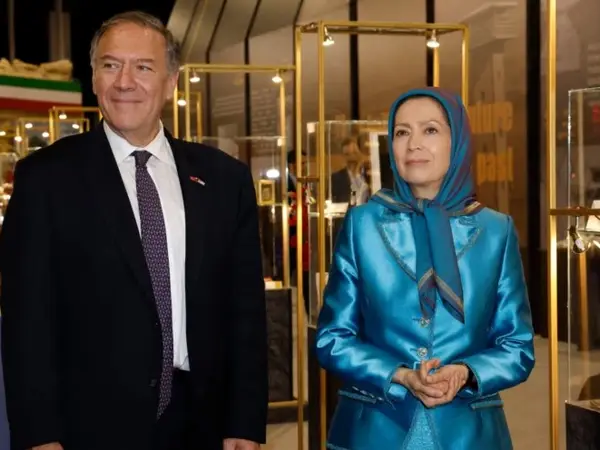Iran’s Fars news website affiliated with the Revolutionary Guard Wednesday called for targeting an opposition group in Europe with ballistic missiles and drones.
In an article with a long historical background on violent terror acts by the Mojahedin Khalq organization, known as Mek in the 1980s, the IRGC mouthpiece insisted that Iran has the Islamic Republic has the right to self-defense and it would be justified if “it employs hard power against terrorists. The capabilities of Iran’s attack drones and ballistic missiles can be used to hit the center of the [Mek] in Albania without any legal impediment.
The article added that authorities in Tehran should issue the necessary warning to the Albanian government, which is hosting a few thousands MeK members, and follow it up with military action.
But Fars also mentioned “host governments”, where the MeK might have a presence, which could include France and others in Europe.
“If host governments refuse to expel and extradite the hypocrites (a term used by Tehran for the MeK), they should be threatened with reciprocal action…based on the doctrine of the Islamic Republic to fight security threats at their source,” the article said. It went on to cite the principle of “Responsibility to Protect” the nation and the UN Charter’s article 51, “which allows military action to preserve international peace and security.”
The Mojahedin were a revolutionary group engaged in opposition to the monarchy in the 1970s and carried out armed attacks. They fully backed Ayatollah Ruhollah Khomeini’s decision to set up the Islamic Republic in early 1979 after Shah Mohammad Reza Pahlavi left the country and Khomeini returned from exile. However, tensions rose between the group and the clerical regime taking shape, which led to mutual violence.
The MeK leadership fled to Iraq, which had attacked Iran in September 1980, and received protection from the Iraqi dictator Saddam Hussein who helped them form a militia and fight against Iran. The Islamic Republic counts this as high treason, in addition to violent acts the group carried out inside Iran.
In 1988, the Islamic Republic carried out a decision blessed by Khomeini to kill around 3,000 members of the group serving their prison sentences. Many say this is equivalent to war crimes and a crime against humanity.
An Iranian diplomat who plotted to bomb a MeK rally in Paris was convicted and sentenced to 20 years in jail on terrorism charges by a Belgian court, and a former prison Guard was recently sentenced to life in Sweden for his role in the 1988 prison killings.
MeK members and sympathizers gradually migrated to Europe and North America where they formed a close-knit organization, sometimes likened to a sect, which increasingly changed its path as a terror group to a relatively rich lobbying organization in the West against the clerical regime. However, a few thousand members who had stayed behind in a camp in Iraq were transferred to European counties and Albania by the United States and the United Nations in 2016.
The same year the group opened an office in Albania and is generally referred to as an Albania-based organization. Until a few years before the move, MeK was listed as a terrorist organization by the United States and the European Union, but as it became a lobbying and political entity, the designations were lifted.
